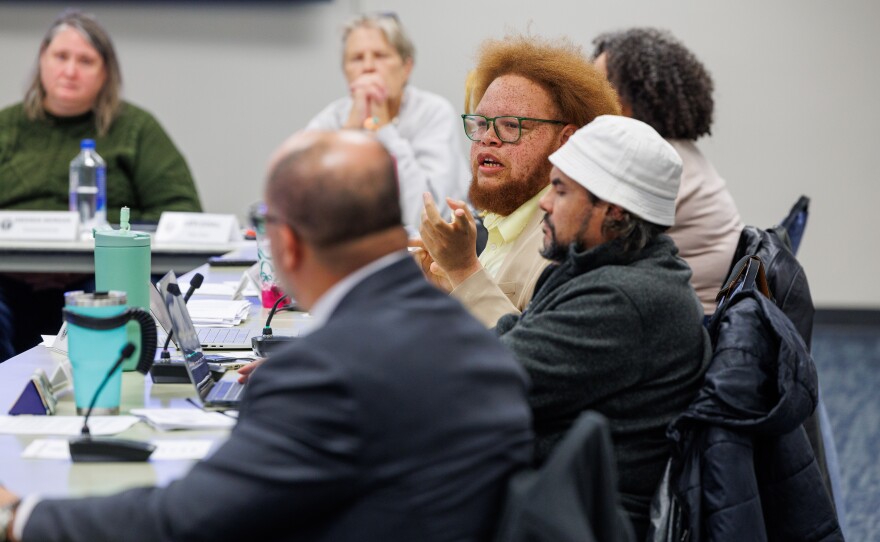Each time someone sends an email, streams a show or scrolls social media, they’re interacting with a data center.
And now, Michigan is becoming a battleground for them— the warehouse-style facilities that store and move the digital information people use every day. The proposed facilities are raising a lot of questions about noise, electricity, and the use of fresh water.
Earlier this month, during a planning commission meeting in Lansing, residents crowded inside of a small conference room and through the hallway to voice their opinions on a new, controversial data center planned for downtown.
The proposed Deep Green data center would be the newest in Mid-Michigan, one of several sparking debates across the state.
Many residents may not realize these centers already operate in parts of Mid-Michigan. Five are currently up and running, including two Liquid Web locations that have been around for about 20 years.
Ingham County locations include:
- Deep Green: 313 S Capitol Ave., Lansing (Proposed)
- Liquid Web: 4428 Creyts Road, Lansing
- Liquid Web: 4210 Creyts Road, Lansing
- ACD.net MetroIX: 1800 N Grand River Ave., Lansing
- Lumen Communications: 1206 May St., Lansing
- Everstream: 1515 Turf Lane, East Lansing
But a wave of new proposals across the state has touched off questions, confusion and — in some communities — strong opposition.
This week, WKAR News launches “Michigan’s Data Center Divide,” an in-depth series examining why these facilities are suddenly at the center of public debate.
The issue isn’t just local. Nationally, the tech industry is accelerating its push to build more data centers in response to growing demand for AI infrastructure.
Last week, artificial intelligence company Anthropic announced a $50 billion investment that includes new data centers planned for Texas and New York. Microsoft also said it is constructing a large AI data center in Atlanta that will tie into another in Wisconsin as part of what the company described as a “massive supercomputer” powered by hundreds of thousands of Nvidia chips.
Analysts say these projects reflect the industry’s rush to meet surging AI demand, even as communities question the environmental, financial and political impacts of the energy-hungry facilities.
At the same time, utilities across the country are raising rates to meet higher electricity demand. PowerLines, a consumer advocacy group, reported that gas and electric companies filed for or secured more than $34 billion in rate increases in the first three quarters of 2025 — more than double the amount from the same period last year.
Data centers’ high energy consumption means some utility companies will need to expand their energy grid. Nationally, this is leading to a resurgence in coal generation, raising environmental concerns.
Liesl Eichler Clark, director of climate action engagement at the University of Michigan’s School for Environment and Sustainability, says Michigan is part of a broader trend.
“Data centers aren't new to the U.S. They're not new to the globe,” Clark said. “There's a pretty high population in Virginia, for example, and other parts of the country, and so I think we're just seeing more interest in Michigan right now.”

Much of the tension stems from uncertainty over what these centers do and how they affect communities.
“I think one of the big issues is, frankly, transparency,” Clark said. “Communities as well as people across the state want to understand what's happening.”
Residents have raised concerns about energy use, water demands, noise, farmland loss and long-term sustainability.
In a Lansing Facebook discussion, resident Marshall Clabeaux wrote: “Not a sustainable future. What happens when the bubble crashes? Who benefits from environmental damage? Wildlife and humans mental affected everyday.”
Throughout the week, WKAR News will break down the controversy: what data centers are, why companies build them, how many jobs they support and why Michigan is drawing new interest. The series will also cover environmental questions and the role these facilities play in the state’s economic development strategy.
Coverage includes a close look at a proposed project within Lansing city limits from Deep Green, a U.K.-based company that says its model uses excess heat to reduce emissions. WKAR News will examine how the company’s system works and look at its operating facility overseas.
Stories in the series will be produced by WKAR News reporter Victoria Witke, with long-form interviews conducted by “All Things Considered” host Sophia Saliby and “Morning Edition” host Melorie Begay.
As communities weigh land-use decisions and residents seek clarity, WKAR News will provide reporting to help people understand what’s at stake — in Michigan and across the country.
The series will run all week on WKAR.org, 90.5 FM and NewsTalk 102.3 FM.








